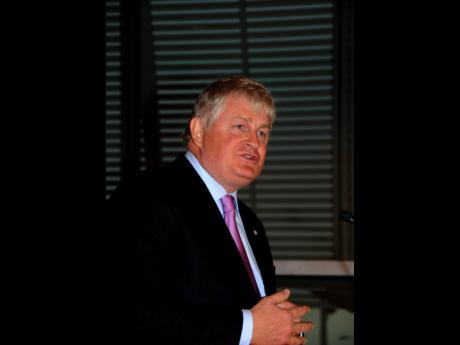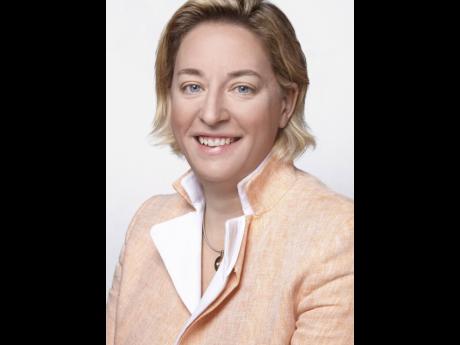Telecoms call for infrastructure PPP and tax breaks
Jamaica’s big two telecommunications companies are calling for a public-private partnership, PPP, to build out a resilient backbone for the country’s digital infrastructure.
With Jamaica’s digital penetration at an estimated 40 per cent, the telecoms bosses agree that Jamaica is lacking the vital tools for technological adaptation, catching up and competing with countries that are more advanced, and upskilling the younger population.
Leading the call is Digicel Group Chairman Denis O’Brien, who says Jamaica has the best opportunity now to leapfrog the digital divide, while arguing that tax relief, facilitating greater access to digital devices, and broadband penetration are critical for Jamaica to upscale to a more high-value economy, beyond its dependence on the business process outsourcing, BPO, sector.
“Jamaica now has the biggest opportunity in the Caribbean to go to the next level. I don’t think that we as Jamaicans should be satisfied with just BPO jobs. We need to extend the depth of our direct investment in this area to high-value positions, while at the same time maintaining our involvement in BPO, presently valued at around US$400 million,” O’Brien said Wednesday at the ‘PSOJ Roadmap to Jamaica 2.0: A Conversation on the Digitisation of Jamaica’ forum.
O’Brien outlined practical reasons for the call. He says there is a need for a greater number of qualified persons graduating with the competence to work in areas such as writing code to do programming or applications development. The Digicel chairman is arguing that Jamaica needs changes in fiscal arrangements that will allow for bringing in low-cost tablets so that children can be better trained. This, he says, will get them more digitally involved and bring down the price of the gadgets, making them more accessible, which for him is a very big issue.
Consumers presently pay 90-100 per cent aggregate duty on digital devices such as smartphones, tablets and laptops; in addition to 25 per cent GCT on data or talk-time charges.
“All our industries here are heavily taxed, but when it comes to the telecoms industry we’re talking super-taxation, with 30 per cent of our revenues going to the government – and that has to change,” O’Brien said.
CEO of C&W Communications Plc Inge Smidts similarly argued that economic progress is being stifled by high levels of taxation, saying it puts constraints on revenue and diminishes the attractiveness of propositions for further expansion.
“The taxation is hampering the growth and it’s hampering the adoption. Even if we bring it down, and we don’t get to where want to be, we will still get a better outcome,” Smidts told the virtual PSOJ forum.
Lead specialist on telecommunications in institutions for development at the Inter-American Development Bank, Antonio Garcia Zaballos, says Jamaica ranks 78 out of 125 in global readiness for digital upgrading. Noting that the present position is a real hindrance to growth, Zaballos notes that Jamaica is about 35-40 points behind the top five countries.
“Those economies are moving ahead with their digitalisation. If we don’t continue investing and supporting the efforts of the private sector through a public-private partnership we will see no increase,” he said. “We simply have no choice.”
He, too, highlighted the need for demand-side efforts, such as making instruments more affordable, upskilling the population to compete in a digital environment and amenable taxation policy. On the supply side, Zaballos called for better digital infrastructure through the expansion of Jamaica’s fibre-optic network, greater availability of wireless broadband and the expansion of spectrum, meaning the radio frequencies at which telecoms are allowed to operate.
O’Brien says telecoms need more room to expand their networks so that they can offer better service to consumers, while noting that Digicel has invested about US$500 million, or 18 per cent of revenues, on building out infrastructure over the last three years.
“There has to be a change, because if you are to create deeper and faster networks you have to remove the cap on spectrum. If the Spectrum Management Authority were to release more spectrum, that would improve the footprint and the speeds that people are getting today,” O’Brien said.
On the issue of the provision of 5G services, O’Brien said it would only make sense in the urban metropolitan areas of Kingston & St Andrew. The Digicel chairman joined C&W’s Smidts in calling for closed-door discussions aimed at arriving at a position that will allow Jamaica to implement 5G and not worry about being left behind.
“Jamaica is on the cusp of absolute greatness not only in terms of its economy, but digitisation as well, if we come together with proper implementable plans,” O’Brien said.


